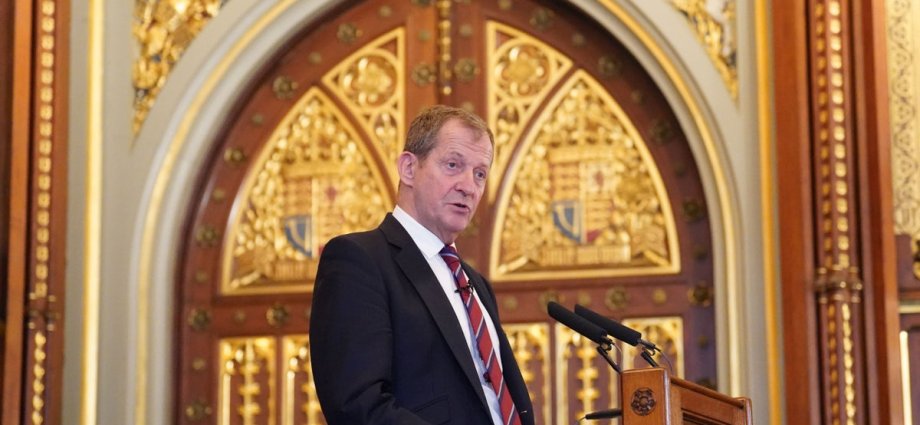pin doctor-turned-podcaster Alastair Campbell said campaigns where rivals “try to destroy each other” are putting people off politics.
The former Downing Street press secretary in Sir Tony Blair’s New Labour government said MPs need to better look after their own mental wellbeing as he described Parliament as being a “laboratory” for mental illness.
The comments come only a day after the SNP’s deputy Westminster leader Mhairi Black announced she will step down at the next general election due to the “toxic” environment in Parliament, with the 28-year-old describing it as “one of the most unhealthy workplaces that you could ever be in”.
Mr Campbell, answering questions on Wednesday after giving a speech about mental health as part of Lord Speaker Lord McFall’s lecture series, said: “Let’s be honest, politics itself doesn’t do a good job of kindness, compassion and empathy.
Political life is not normal. It is in many ways a laboratory for mental ill health
“That is partly the way our system is founded, partly it is the way… I’ve been involved in some pretty tough campaigns, I believe in tough campaigning.
“But at the same time, I think the message we are putting out to people the whole time is actually we’re not really being supportive of each other, we’re trying to destroy each other.
“And that is the opposite of kindness and compassion and empathy, and I think that is honestly one of the reasons why people are turning away from politics, which is in itself incredibly dangerous.”
The mental health campaigner has been open about his own personal struggles, telling the audience he sought professional help in 2005 after leaving government due to the fact he had started to self-harm.
“I was literally physically beating myself up and giving myself black eyes,” he told the audience.
During a speech in the House of Lords robing room, Mr Campbell, who co-presents the popular The Rest Is Politics podcast alongside former Conservative cabinet minister Rory Stewart, urged MPs to do more to protect their mental health.
He said before the last general election in 2019, six MPs — four from Labour, one SNP and one Tory — contacted him asking for help because they “didn’t want to stand again but felt they should”.
When he told them about Westminster’s mental health services, he said four of the six MPs explained that they were “worried” and had “anxiety” about others in Westminster finding out that they might require assistance.
In his speech, the 66-year-old former journalist said he did not want so-called “normal” politicians but instead wanted the country’s law makers to be “special”.
Mr Campbell said: “Political life is not normal. It is in many ways a laboratory for mental ill health.
“The hours, the pressures, the separation from family and from community, the shocks and the set-backs, the volume and nature of the issues to deal with, the public hate and toxicity, particularly since the advent of social media.
“It would be far better to acknowledge all that and to work on it but most of us… just plough on.
“And get this — sport is primarily physical. But you won’t find many top athletes who do not have proper psychological support.
“Politics is primarily mental yet do politicians really focus on looking after their mental health and wellbeing?
“They and the country would be a lot better if they did.”
Conservative MP Sir Charles Walker, who also gave a speech, said the pressures of Westminster had the ability to expose any “weakness” that elected representatives have.
He said: “What I’ve noticed in my 18 years is that if you have a weakness or a predisposition to an illness in this place that may remain dormant if you’re not a politician, when you get here, like a screwdriver prising the lid off a can of paint, it will get you.
“So if you have a weakness about alcohol or addiction, this place will get you.
“If you have a weakness for money or gambling, it will get you. And if you have an undiagnosed mental health condition that may have remained dormant for your entire life, generally there is a high chance it will expose it.”
Sir Charles said the health and wellbeing service in Parliament had improved “dramatically” over the past seven years.
He added: “I want more members of Parliament, as Alastair said, to reach out when they need help, when they are struggling.
“And a lot of the problems we encounter with members of Parliament happen because they don’t know who to ask for help or they don’t want to ask for help.”











